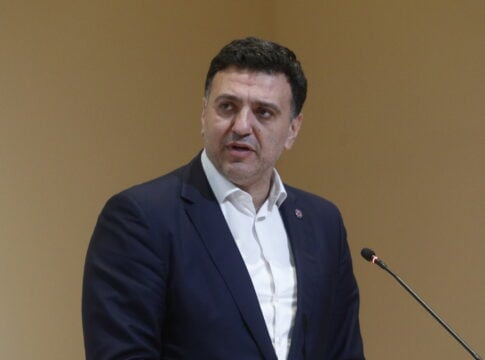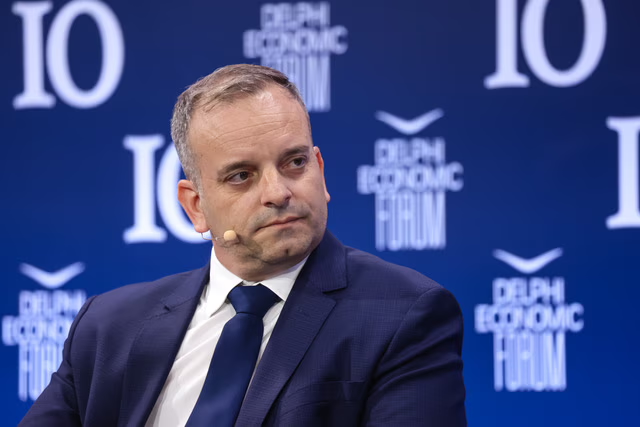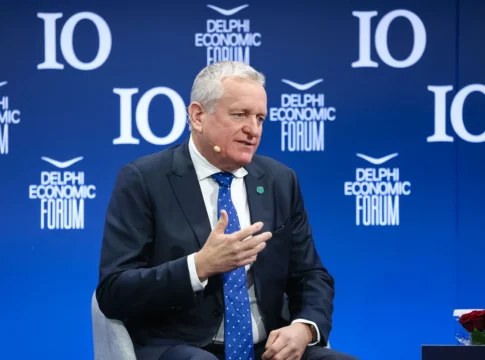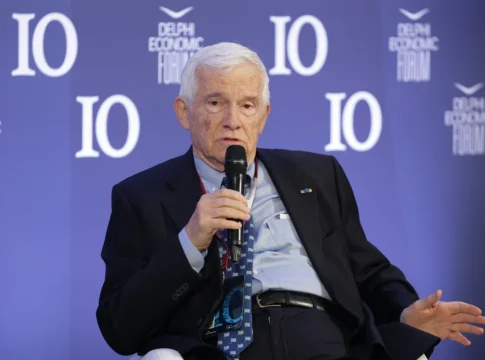Are you looking for experts from around the world in the field of digital technology, green transition, construction, or healthcare? The European Commission, on the initiative of the Greek vice-president Margaritis Schinas, submitted a regulation proposal for the creation of a “Talent Pool” in the European Union.
The aim is to connect companies and employers from different member states with jobseekers from outside the EU. This is an additional tool to tackle labor shortages, allowing jobseekers outside the EU to register with a platform and find job vacancies posted by European employers.
“The aging and declining population of the EU is likely to exacerbate labor shortages, increase pressure on public budgets and negatively affect the EU’s competitive advantage,” according to the regulation, which has been on public consultation from December 6 and will last until January 31.
The vice-president of the European Commission and initiator of the measure, Margaritis Schinas, explained to “Naftemporiki” that “the European talent pool is the first initiative in the history of the EU that aims at the organized mobility of workers from third countries to the EU to cover the enormous needs of EU for workforce in critical sectors of the economy.
We will of course continue every effort to improve the supply from the internal labor market with actions and funding that will reach the historically high level of 65 billion euros by 2027. However, the data shows that this will not be enough: 75% of European SMEs report that they cannot find the staff or skills they need. And Europe’s dramatic demographic situation doesn’t help.”
According to Eurostat, the unemployment rate across the Union may remain at a low level of 6%, but the number of job vacancies is still close to 3%. This shows that Europe is struggling to fill its jobs with only local workers. In addition, the increasing average age of the population is expected to worsen the situation and lead to a decline in the working-age population. According to the Commission, the platform will help member states to tackle “skilled labor shortages.”
Innovative perspective
As Schinas stressed to “Naftemporiki”, “the Commission proposes the European talent pool as an additional innovative perspective. It is a platform that will publish job vacancies in member states in sectors such as agriculture, tourism, catering, health and aged care services, digital skills, etc. and will allow expressions of interest from third country nationals who have the relevant qualifications.
The system will be optional and member states will have the final say on whether to make use of the possibilities offered by the platform in accordance with national employment rules. The first indications are positive and I look forward to the approval of our initiative by the Council and the European Parliament. Europe cannot afford to wait. We need immediate performance solutions and we need to launch them in a timely manner.”
According to Brussels estimates, the “talent pool” outside the EU will mean an increase in GDP at the European level between 3.8-4.25 billion euros, thanks to the additional wages that will be created in the various participating countries. The impact on tax contributions will be between 918-957 million euros and on remittances to third countries, between 712-748 million. In addition, the digital platform, which is free to use, will save costs for up to 77 million employers and enable them to increase their productivity and capacity for innovation and growth.
One of the most important legislative proposals
Undoubtedly, this is one of the most important legislative proposals in the field of migration, as in many member states there is a labor shortage for certain professions, a situation that has worsened since the pandemic.
Once the regulation is adopted, which is expected in 2025, and the digital platform is in place, by 2027, the EU will be the one to propose a list of occupations with a labor shortage. However, member states can add other occupations in which they have specific needs for employees, as well as delete those that do not.
To facilitate the recruitment of workers from outside the European Union, countries can introduce accelerated migration procedures for obtaining visas and residence permits and will be exempted from the principle of preference for citizens of the Union, in the case of job offers available in the EU Talent Pool. “We are in a global competition for talents against very strong competitors who have easy offers for third-country nationals,” Margaritis Schinas added, pointing to the US, Canada, New Zealand and Australia.
Avoiding “brain waste”
In order to reduce bureaucratic obstacles, the European Commission also put forward a recommendation to facilitate the recognition of qualifications. “We have a lot of red tape and this makes workers from third countries reluctant to go through the process of having their professional qualifications recognized. We call this a “waste of brains,” Schinas said, adding that it may be possible to propose relevant legislation in the future.
Business associations have welcomed the proposal as a way to fill gaps in Europe’s labor supply. “It is an important approach to bring skilled third-country nationals to the EU in the most important occupations in short supply,” Markus Beyrer, Director of Business Europe, commented.














